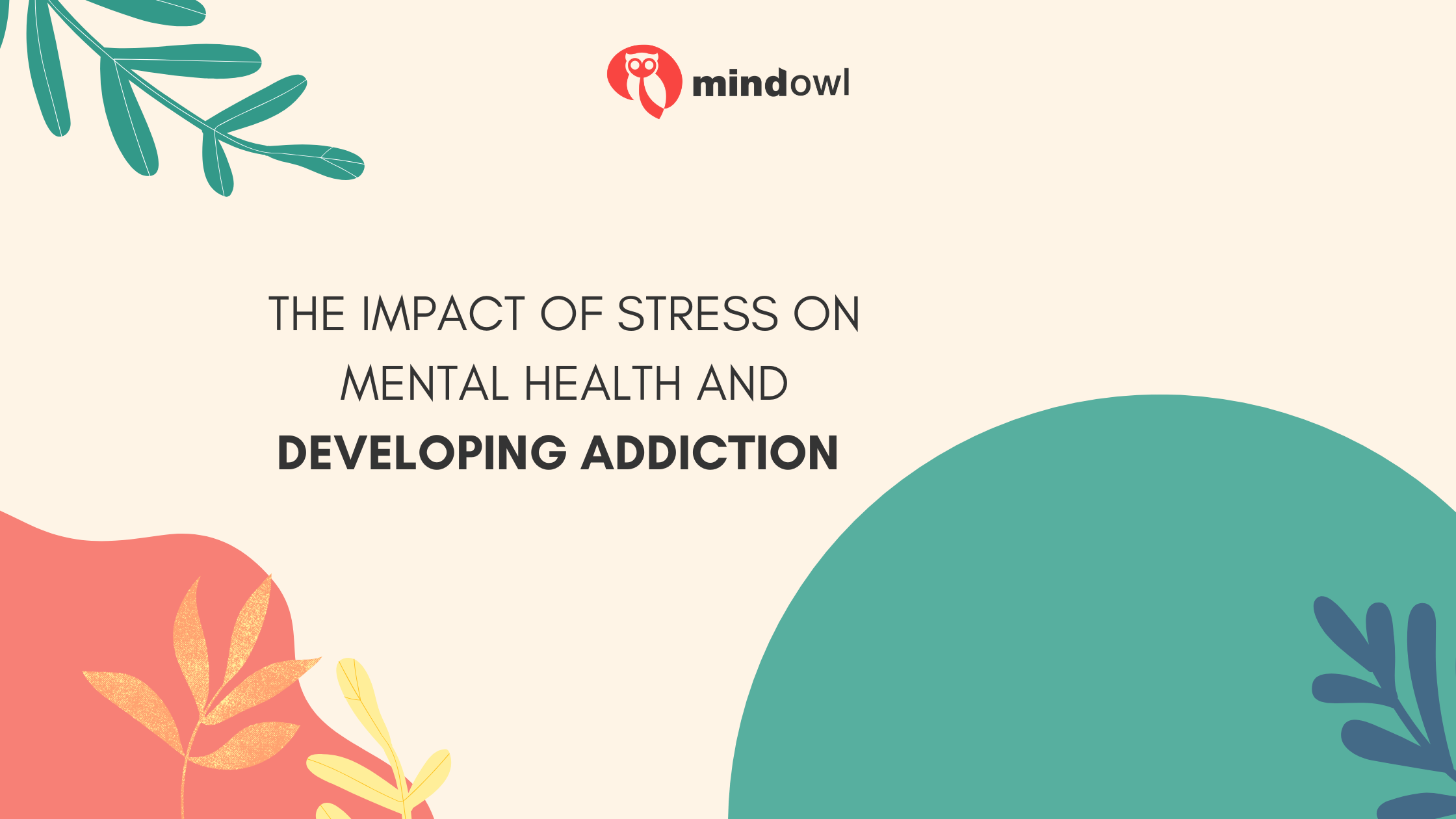
People exposed to chronic stress are known to develop mood and anxiety disorders more likely than others, which could lead to a higher risk of substance abuse as a way of coping.
What matters is to be aware of these correlations because help is available for those who realize they have a problem. In this guide, we will focus on the link between stress, mental health, and substance addiction. Moreover, we’ll provide specific resources that can be useful for improving mental health and successfully battling this disorder.
2. The Link Between Stress and Mental Health
In a psychological sense, unmanaged stress sometimes leads to insomnia, irritability, memory issues, or poor concentration. Moreover, the leading cause of burnout is associated with workplace stress.
Although positive stress can help in short bursts, its chronic form is mainly a negative force that can lead to the development of depression and anxiety. In that regard, stressors are also associated with the onset of major depressive episodes.
Moreover, according to one research report, 51% of adults who were stressed reported that they felt depressed as well. Similarly, 61% of adults feeling stressed said they were also anxious.
Additionally, another study shows that increased stress is a risk factor for developing substance abuse, so let’s take a closer look at this issue.
Stress doesn’t affect only our mental health; it also changes how our entire bodies work. If it’s excessive, it can increase blood pressure or even cause gastrointestinal problems like stomach ulcers or diarrhea. All this can lead to much more serious consequences, including a higher risk of heart disease.

3. Stress as a Precursor to Substance Addiction
People respond to stress differently. Some turn to beneficial practices like exercise or meditation to manage their stress, while others might seek immediate relief through substances like drugs or alcohol. It’s important to recognize that there are numerous factors contributing to addiction, with chronic stress being one of them . Understanding the ways we cope with stress can greatly enhance our ability to avoid dependence on unhealthy quick fixes.
Specifically, a portion of people who are not equipped with adequate methods for dealing with stress rely on substances such as opioids as a means of managing stress. This can later lead to the development of substance dependence. Oftentimes, opioids are abused to numb both physical and emotional pain.
Even when on the road to recovery, the spike in stress levels can be challenging to handle. Moreover, work-related issues or family matters may increase the elevated stress. With that in mind, stress can be a turning point for addiction relapse for people with substance use disorders such as opioid use disorder (OUD).

4. Strategies for Coping with Stress
As much as stress can be persistent, so can you, as there are tried and tested ways to help you cope with it.
Starting with mindfulness techniques and stress-reduction exercises that will help you regulate your breathing and relax your mind and body. These methods involve guided imagery and relieving physical tension.
Another excellent strategy you may want to work on is building a strong support network and seeking professional support the moment you require it. Your partner, friends, and family may play an immense role in this.
Overall, stress is widely prevalent and often regarded as a normal part of daily life. Managing it effectively, even if the impact seems minimal, can be important in preventing mental health issues and addiction. Moreover, it’s will be a useful strategy to maintain your well-being and avoid triggers that could lead to relapse for those who struggle with substance abuse.
5. Seeking Support from Resources

There are various excellent resources for finding information and support related to stress management. This includes different websites that offer a range of tools, articles, and programs designed to help everyone who wants to effectively cope with stress.
On the other hand, if you’re struggling with opioid dependence, you can find help in withdrawal symptoms treatments. The method they use to help their patients overcome their problems is based on restoring your brain to the state it was in before addiction.
6. Conclusion
The impact of stress on mental health and addiction is significant, so the best way to go about it is to make a strategy for managing it. As avoiding stress is rarely possible in the modern age, you should work on handling it by relying on available tools and resources so you can preserve your general health and well-being.
MindOwl Founder – My own struggles in life have led me to this path of understanding the human condition. I graduated with a bachelor’s degree in philosophy before completing a master’s degree in psychology at Regent’s University London. I then completed a postgraduate diploma in philosophical counselling before being trained in ACT (Acceptance and commitment therapy).
I’ve spent the last eight years studying the encounter of meditative practices with modern psychology.


